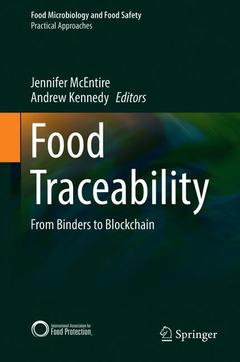Description
Food Traceability, 1st ed. 2019
From Binders to Blockchain
Practical Approaches Series
Coordinators: McEntire Jennifer, Kennedy Andrew W.
Language: English
Subjects for Food Traceability:
198 p. · 15.5x23.5 cm · Hardback
Description
/li>Contents
/li>Biography
/li>Comment
/li>
Andrew Kennedy is a leading voice in the world of food traceability, sustainability and food safety. He has developed supplier transparency and traceability solutions for leading restaurant operators, retailers and food companies using cloud and Blockchain technology. As the Interim Director of the Global Food Traceability Center at IFT, he is a leader of industry-wide initiatives to implement food traceability in seafood and produce.
Mr. Kennedy serves as a board member and chair of the Science and Technology committee of the Produce Marketing Association; has co-chaired several national and global food traceability technology standards initiatives; and led FoodLogiQ’s successful participation in the FDA Food Traceability Pilot. He has worked with food producers on four continents and across the United States.
Prior to FoodLogiQ, Mr. Kennedy served in leadership roles in a medical device manufacturing compan
Product/commodity specific traceability information
Identification of approaches and challenges for different points in the supply chain including farmers, processors, distributors and retailers
Articulation of the benefits system-wide traceability brings to consumers, industry, and public health agencies
Discussion of how drivers such as blockchain intersect with existing traceability approaches




